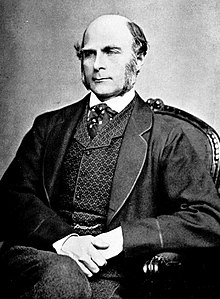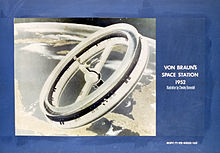Ender's Game
Appearance
Ender's Game (1985) is the most famous novel of Orson Scott Card. The book originated as a science fiction novelette in Analog magazine (1977). Card later expanded the novel into the Ender's Game series, dealing with the long-term results of the war.
Quotes
[edit]- “The essence of training is to allow error without consequence.”
- Introduction to "Ender's Game" (hard cover novel)
- "“Because never in my entire childhood did I feel like a child. I felt like a person all along--the same person that I am today. I never felt that I spoke childishly. I never felt that my emotions and desires were somehow less real than adult emotions and desires.”
- Introduction to "Ender's Game" (hard cover novel)
- "That monitor is going to come out today. We're going to take it right out, and it won't hurt a bit."
Ender nodded. It was a lie, of course, that it wouldn't hurt a bit. But since adults always said it when it was going to hurt, he could count on that statement as an accurate prediction of the future. Sometimes lies were more dependable than the truth.- Ch. 1: Third
- For a moment, the others backed away and Stilson lay motionless. They were all wondering if he was dead. Ender, however, was trying to figure out a way to forestall vengeance. To keep them from taking him in a pack tomorrow. I have to win this now, and for all time, or I'll fight it every day and it will get worse and worse.
- Ch.1: Third
- "I'll lie to him."
"And if that doesn't work?"
"Then I'll tell the truth. We're allowed to do that, in emergencies. We can't plan for everything, you know."- Ch. 3: Graff
- "Ender didn't like fighting. He didn't like Peter's kind, the strong against the weak, and he didn't like his own kind either, the smart against the stupid."
- Ch.3: Graff
- He toyed with the idea of trying to be like the other boys. But he couldn't think of any jokes, and none of theirs seemed funny. Wherever their laughter came from, Ender couldn't find such a place in himself. He was afraid, and fear made him serious.
- Ch. 4: Launch
- “It isn't the world at stake, Ender. Just us. Just humankind. As far as the rest of the earth is concerned, we could be wiped out and it would adjust, it would get on with the next step in evolution. But humanity doesn't want to die. As a species, we have evolved to survive."
- As a species, we have evolved to survive. And the way we do that is by straining and straining and, at last, every few generations, giving birth to genius.
- Colonel Graff, Ch. 4: Launch
- Human beings are free except when humanity needs them.
- Colonel Graff, Ch. 4: Launch
- He could see Bonzo's anger growing hot. Hot anger was bad. Ender's anger was cold, and he could use it. Bonzo's was hot, and so it used him.
- Ch. 7: Salamander
- So he believed. Believed, but the seed of doubt was there, and it stayed, and every now and then sent out a little root. It changed everything, to have that seed growing. It made Ender listen more carefully to what people meant, instead of what they said. It made him wise.
- Ch. 8: Rat
- The world is always a democracy in times of flux, and the man with the best voice will win. Everybody thinks Hitler got to power because of his armies, because they were willing to kill, and that's partly true, because in the real world power is always built on the threat of death and dishonor. But mostly he got to power on words, on the right words at the right time.
- Peter, Ch. 9: Locke and Demosthenes
- Remember - the enemy's gate is down.
- Ch. 10: Ender
- There was no doubt now in Ender's mind. There was no help for him. Whatever he faced, now and forever, no one would save him from it. Peter might be scum, but Peter had been right, always right; the power to cause pain is the only power that matters, the power to kill and destroy, because if you can't kill then you are always subject to those who can, and nothing and no one will ever save you.
- Ch. 12: Ender
- Perhaps it's impossible to wear an identity without becoming what you pretend to be.
- Ch. 13: Valentine
- "In the moment when I truly understand my enemy, understand him well enough to defeat him, then in that very moment I also love him. I think it's impossible to really understand somebody, what they want, what they believe, and not love them the way they love themselves. And then, in that very moment when I love them... I destroy them. -"
"You beat them." For a moment she was not afraid of his understanding.
"No, you don't understand. I destroy them. I make it impossible for them to ever hurt me again. I grind them and grind them until they don't exist."- Ender & Valentine, Ch. 13: Valentine
- "Human beings didn't evolve brains in order to lie around on lakes. Killing's the first thing we learned. And a good thing we did, or we'd be dead, and the tigers would own the earth."
- Valentine, to Ender, Ch. 13: Valentine
- "If one of us has to be destroyed, let's make damn sure we're the ones alive at the end. Our genes won't let us decide any other way. Nature can't evolve a species that hasn't a will to survive. Individuals might be bred to sacrifice themselves, but the race as a whole can never decide to cease to exist."
- Graff, to Ender, Ch. 13: Valentine
- He had long since learned that when something unusual was going on, something that was part of someone else's plan and not his own, he would find out more information by waiting than by asking. Adults almost always lost their patience before Ender did.
- Ch. 14: Ender's Teacher
- "All right," Ender gasped. "You win."
The man's knee thrust painfully downward. "Since when," ask the man, his voice soft and rasping, "do you have to tell the enemy when he has won?"- Ch. 14: Ender's Teacher
- "I am your enemy, the first one you've ever had who was smarter than you. There is no teacher but the enemy. No one but the enemy will tell you what the enemy is going to do. No one but the enemy will ever teach you how to destroy and conquer. Only the enemy shows you where you are weak. Only the enemy tells you where he is strong. And the rules of the game are what you can do to him and what you can stop him from doing to you. I am your enemy from now on. From now I am your teacher."
- Ch. 14: Ender's Teacher
- "Remember, boy. From now on the enemy is more clever than you. From now on the enemy is stronger than you. From now on you are always about to lose."
The old man's face grew serious again. "You will be about to lose, Ender, but you will win. You will learn to defeat the enemy. He will teach you how."- Ch. 14: Ender's Teacher
About Ender's Game
[edit]




- Reverse colonial sci-fi don't always have to be anti-imperialist, though. Ender's Game, both film and book, use the invasion of the superior aliens not as a critique of Western expansion and genocide, but as an excuse for those things. The bugs invade human worlds, and the consequence is that the humans must utterly annihilate the alien enemy, even if Ender feels kind of bad about it.
- Noah Berlatsky, “Why Sci-Fi Keeps Imagining the Subjugation of White People”, (April 25, 2014).
- What works with Ender's Game is Ender's community-building. There's a disparate group of kids who could be rivals, and he's able to bind them together through his personal service to them, through his loyalty, his trustworthiness. They know he'll never waste them, that he's not exploiting them for his own gain.
I certainly was not conscious of it as I was writing him—I'm not much of a follower, and I'm not a good team player—and yet I created the kind of guy that I would follow.- Orson Scott Card in “Orson Scott Card Talks Ender's Game in Rare Interview”, by Shane Snow, WIRED, (10.31.13).
- As it's written, Ender's Game is adaptable. The book takes place entirely inside Ender's head. If you don't know what Ender is thinking, he's just an incredibly violent little kid and not terribly interesting. You have to find ways to externalize what he's thinking. But he can't be the kind of person who explains himself to other people. That would weaken him.
- Orson Scott Card in “Orson Scott Card Talks Ender's Game in Rare Interview”, by Shane Snow, WIRED, (10.31.13).
- Le Guin first mentions the Ansible in her novel Rocannon’s World, published in 1966, and the invention of the device itself was a central motif to her 1974 novel, The Dispossessed. The main character of that novel was the inventor. Card, either through laziness or lack of imagination, appropriated Le Guin’s device full-bore and for reasons that have escaped me over the last thirty odd years, is that no one’s complained or cried foul. Indeed, other writers since then have also used the Ansible for their FTL communication needs.
If Card had stolen a tune from a song and incorporated it in a song of his own (and consequently made a boat-load of money) without sharing the credit with the original songwriter, he’d have his ass handed to him in a sling in court. This is what happened to M.C. Hammer when he stole a famous riff from Rick James in 1990 for his song, “U Can’t Touch This”. The riff that made the song a world-wide hit (and made Hammer’s career) came from the creative mind of Rick James and it was only after a lengthy court battle did James end up sharing credit for Mr. Hammer’s song. Did Hammer say in court that it was a homage to Rick James? No. Did he say that everyone steals from everyone else in the music business and that it’s no big deal? No.- Paul Cook, “Our Ansible is Missing – Intellectual Property Theft in Science Fiction”, (July 17, 2013)
- That Ender could be tricked into believing a real battle scenario was a game-like video simulation is one of the most believable post-modern twists in modern science fiction, particularly considering how often the difference between our digital and "real" lives is debated and conflated. Ender becomes a "hero" in a supposed video game, something that embodies and magnifies fears about video games, both in 1985 when the book was published and today.
- Rachel Eddin, "Ender's Games: What Child Soldiers in Dystopian Fiction Teach Us About Ourselves", WIRED, (10/30/13).
- Sure, people get new jobs, or go to different schools, or grow in prestige. But at no point over the course of the novel do we see a demonstrable growth or change in any of the characters, despite the fact that Ender ages from six to roughly eleven.
I'm willing to grant Card the "exceedingly young hero" just because every science fiction novel geared toward young adults — and many that aren't — runs into this problem.
But to see no demonstrable character growth just sort of removes the stakes from it. Card in many ways suffers from the same problem that Asimov faced in some of his great novels, the fact that he had a rocking plot concept but his characters were two-dimensional cardboard cutouts just going through the motions to make that awesome plot happen.- Walt Hickey, “I Finally Figured Out Why I Hate Ender's Game, The Cult Sci-Fi Novel That Everyone Else Apparently Loves”, (Aug 12, 2013)
- Ender gets to strike out at his enemies and still remain morally clean. Nothing is his fault.
- John Kessel, "Creating the Innocent Killer: Ender's Game, Intention, and Morality". Science Fiction Foundation, (2004).
- I don't know of any pair of novels that have been as consistently misinterpreted as Card's Ender's Game and Speaker for the Dead. Even a reader with a rudimentary knowledge of twentieth century history might be expected to guess that the character of Ender Wiggin, the near messianic superhero, is based on that of Adolf Hitler. Card himself is the "Speaker for the Dead" who seeks to understand and forgive the genocidal dictator's behavior by demonstrating that his intentions were good. Because Hitler/Ender committed genocide to preserve the existence and dignity of what he defined as human, he is not a monster but a true Superman who willingly shouldered the heavy responsibility thrust upon him.
- Elaine Radford, "Ender and Hitler: Sympathy for the Superman (20 Years Later)", (2007-03-26).
- For the reader who isn't convinced that writing a book (no matter how highly acclaimed) makes up for exterminating a race, Card offers an alternative, albeit rather contradictory, excuse for his genocide's actions -- genetic determinism. Although this "science" has been shown to represent such an oversimplification that it's a downright distortion, Card makes it the foundation of the biology of his universe. From the very beginning, authorities can breed geniuses more easily than you or I could establish a strain of purebred blue budgies, and never mind that breeding for color and size involves at most a few genes, while breeding for intelligence would require a total understanding of the complicated interactions between whole chromosomes. In Card's strange world, children can inherit advanced qualities like a talent for xenobiology -- a bizarre combination of genetic determinism and Lamarckianism since these characteristics were presumably artificially acquired at some point in the past. (Or does Card imagine that there is literally a gene for xenobiological talent that we can breed for? How could such a thing evolve? Surely our genes would have to be macroscopic to carry all the information he assumes they do.) In any case, his pseudo-science serves primarily as an excuse for ugly actions running the gamut from genocide to vivisection.
- Elaine Radford, "Ender and Hitler: Sympathy for the Superman (20 Years Later)", (2007-03-26).
- In Ender's Game, the Nebula Award-winning 1985 novel by Orson Scott Card, a 6-year-old boy is taken from his family on Earth to an orbital military academy to be molded into a soldier for a looming extraterrestrial war. For Ender, a misfit genius among some of the world's scariest adolescent prodigies, surviving the other cadets is a violent affair in itself—from maiming fellow students in the shower to orchestrating zero-gravity battles.
- Shane Snow, “Orson Scott Card Talks Ender's Game in Rare Interview”, WIRED, (10/31/13).
- One doesn’t need Freud to work out why Card’s novel is popular. “Ender’s Game” tells the story of an infant prodigy, Andrew Wiggin (nicknamed Ender), who is torn from the bosom of his family at 6 to be trained in “Battle School.” Earth is under threat from aliens -- the Buggers. Future war is waged as a computer game. And who are the virtuosos of the game console? Kids. Who are the best de-Buggers? Not Donald Rumsfeld’s generation.
- John Sutherland, “Science Fiction and Science Fact”, Los Angeles Times, (March 27, 2005).
See also
[edit]- Orson Scott Card
- Speaker for the Dead
- Xenocide
- Children of the Mind
- Ender's Shadow
- Shadow Puppets
- Empire
- Hidden Empire
External links
[edit] Encyclopedic article on Ender's Game on Wikipedia
Encyclopedic article on Ender's Game on Wikipedia Media related to Ender's Game on Wikimedia Commons
Media related to Ender's Game on Wikimedia Commons
